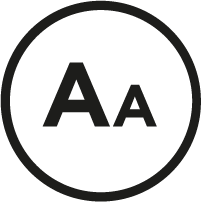Working in the Ruhrgebiet
Science & Research
The Ruhr region plays a special role in the scientific community not only in North Rhine-Westphalia, but also throughout Germany and offers unique conditions for scientists, students and people who want to shape the future.
University centre Ruhr region
With 17 colleges and 5 universities, the Ruhr region has more universities than any other metropolitan region in Germany. There are 49 students per 1,000 inhabitants in the Ruhr region - more than anywhere else in a metropolitan region in Germany.
Renowned research institutes complement the scientific landscape in the Ruhr region. Three institutes of the Max Planck Society, five Fraunhofer Institutes, four institutes of the Leibniz Association and numerous other institutions strengthen research fields ranging from hydrogen to speciality chemicals, environmental technology and logistics.
The Ruhr region can call itself a hotbed of young talent, particularly in the fields of maths, IT, natural sciences and technology, the so-called MINT sector. Almost as many young people study STEM subjects in the Ruhr metropolis as in the specialised locations of Munich and Stuttgart.
A key quality of the Ruhr region as a centre of science and research is the proximity of all institutions to one another. The high number of university networks shows that close relationships have developed not only in terms of space, but also in terms of content. Added to this is the close co-operation with local business players. Research here does not remain in a quiet chamber. The Ruhr metropolis stands for a networked and application-orientated research landscape.
University locations of the Ruhr Metropolis at a glance
University locations of the Ruhr Metropolis at a glance
With 17 universities of applied science and 5 universities, the Ruhr Metropolis has the densest university landscape of all metropolitan regions in Germany - as well as the most students.
Find all universities at a glance here.
Research institutes
Research institutes
In addition to universities and universities of applied sciences, the Ruhr region is also home to numerous renowned institutes and research facilities such as Max Planck Institutes, Fraunhofer Institutes and the Leibniz Association: Non-university research in NRW
University Alliance Ruhr
University Alliance Ruhr
Ruhr University Bochum, the Technical University of Dortmund and the University of Duisburg-Essen are pooling their expertise and resources in the University Alliance Ruhr (UA Ruhr). Under the motto "better together", they offer researchers a wide range of opportunities for cooperation and networking, while students benefit from the wide range of Bachelor's and Master's degree programmes with numerous specialisation options. Further information can be found here.
Research Academy Ruhr
Research Academy Ruhr
The Research Academy Ruhr is the cross-university platform for the promotion of doctoral and postdoctoral researchers in the University Alliance Ruhr. Joint programmes for interdisciplinary qualification and networking support researchers on their career path within and beyond academic research. Further information can be found here.
Dual Career Network Ruhr
Dual Career Network Ruhr
Dual careers play a major role in the recruitment of excellent academics. The Dual Career Network Ruhr (DCN Ruhr) supports partners of newly appointed researchers in their professional orientation in the Ruhr region in order to increase the chances of a successful job search in the region. To this end, 19 organisations from science, business and administration in the region have joined forces. Further information can be found here: Dual Career Network Ruhr
Centre for Innovation und Technology (ZENIT)
Centre for Innovation und Technology (ZENIT)
The Centre for Innovation and Technology in North Rhine-Westphalia (ZENIT) is a network of around 180 primarily medium-sized companies that brings together potential partners from business and science to promote innovation and internationalisation. Further information can be found here: Centre for Innovation and Technology (ZENIT)
Visa and other requirements
Visa and other requirements
Visa for scientists
Information on entry and residence for scientists from non-EU countries:
"German right of residence for academics from non-EU countries"
Information from the German Rectors' Conference
Research stay in Germany
Information from the Federal Office for Migration and Refugees
Detailed information on visa regulations for scientists
You can find out what other requirements may be necessary for your research stay in the Ruhr region here:
Prerequisites
- You should plan your research stay in the Ruhr region well. You can find all the important information - from funding opportunities and visas to language skills - on the Federal Government's portal:
- Further general information on a research stay in Germany can be found on the information portal of the Federal Ministry of Education and Research:
Information for experienced scientists
Information for postdoctoral researchers
Leitfarbe Hintergrund
Further categories in the subject area "Working"
Labour market & Industries Setting up a business Job search & application Salary & employment contract

